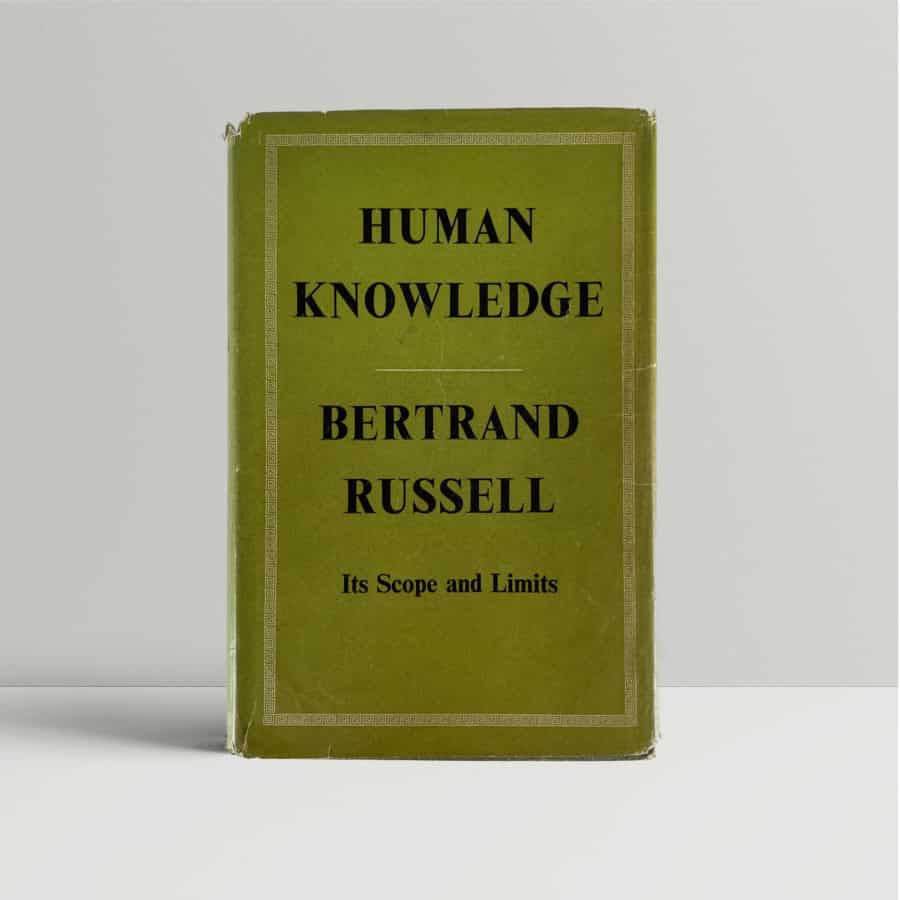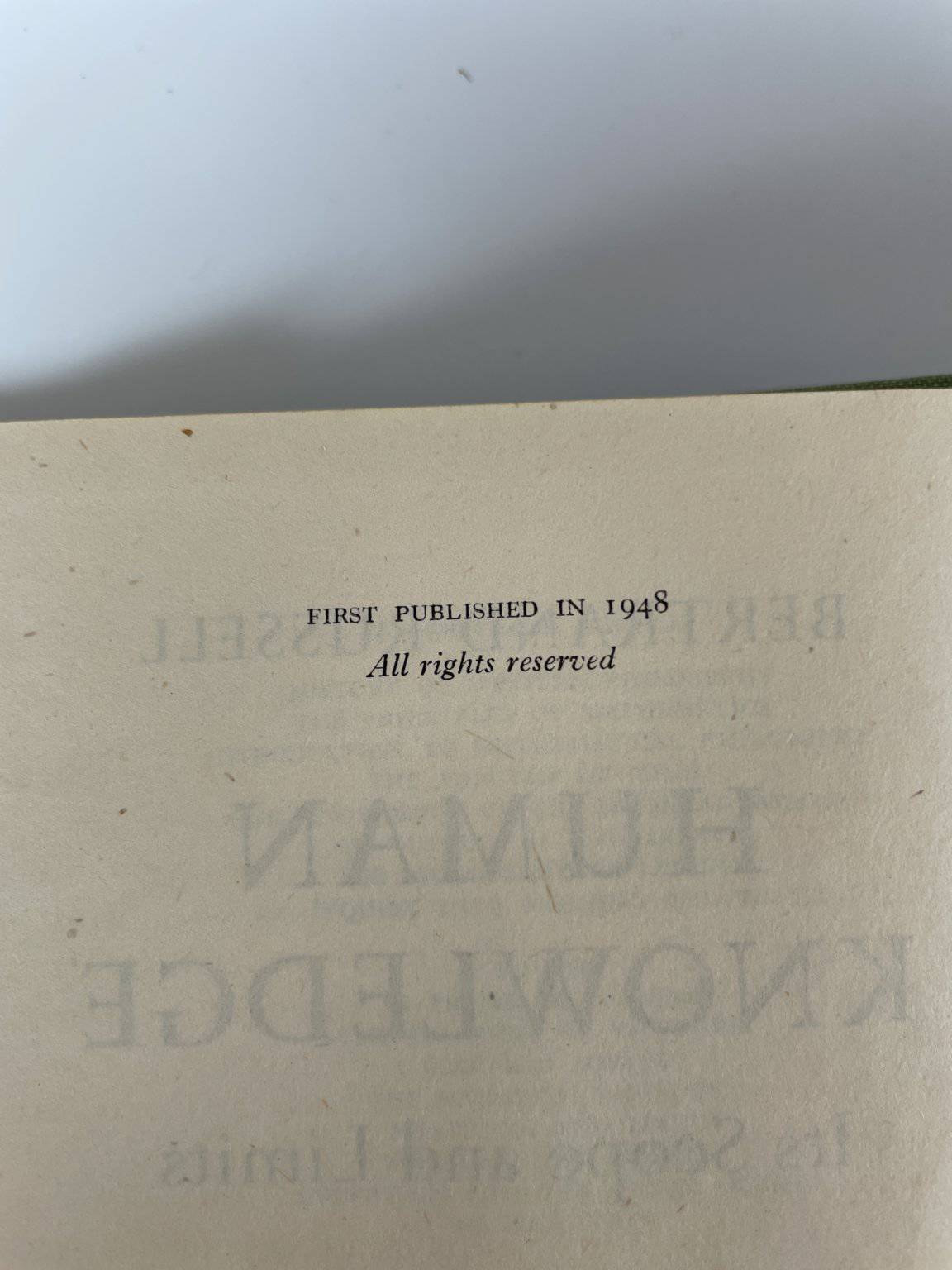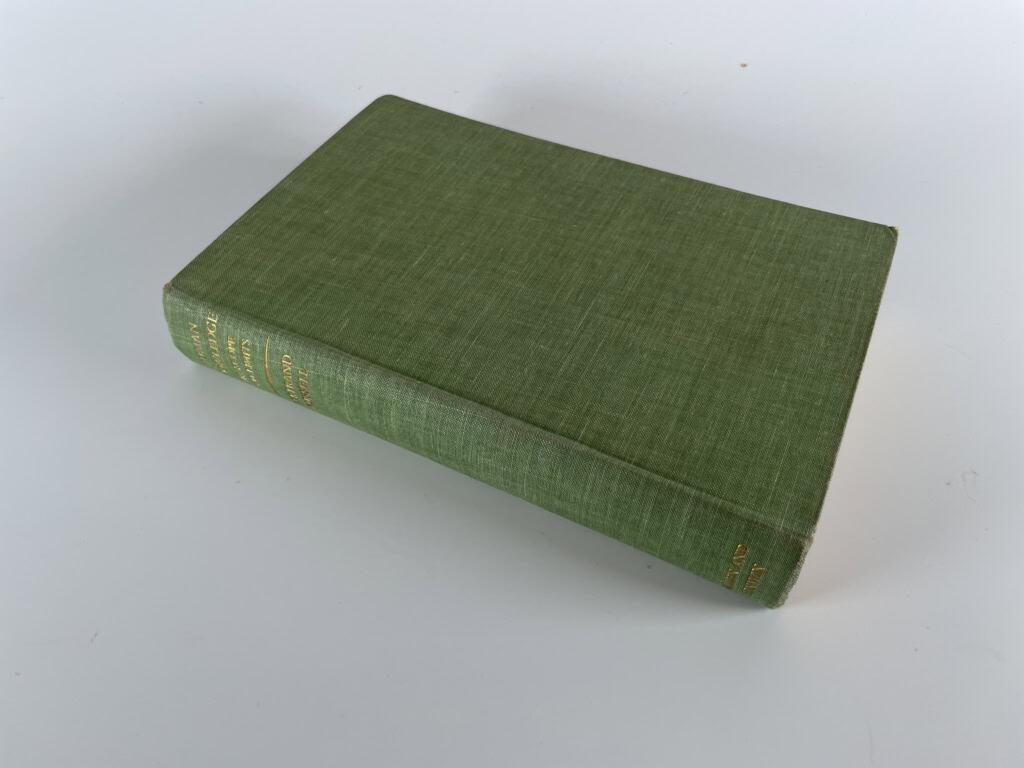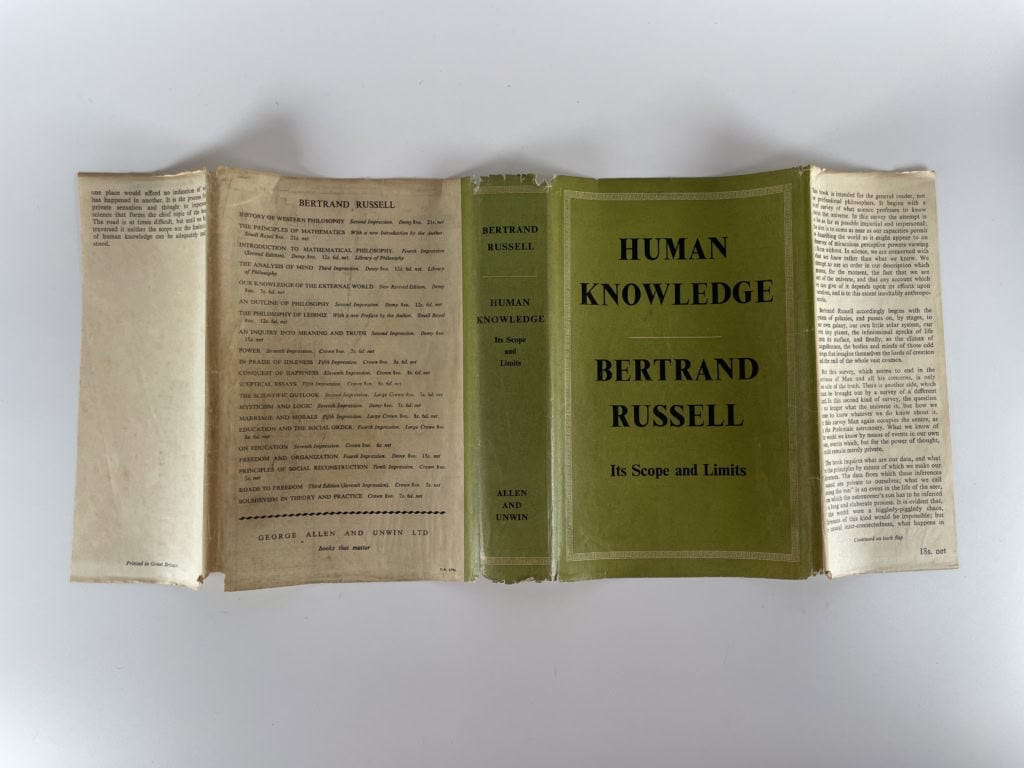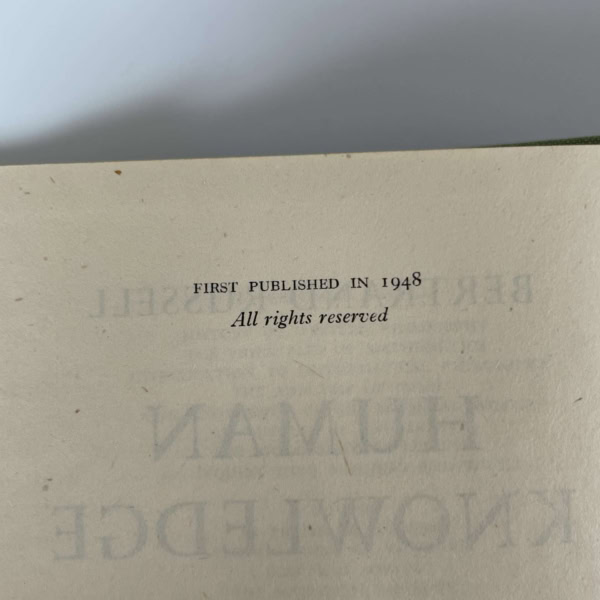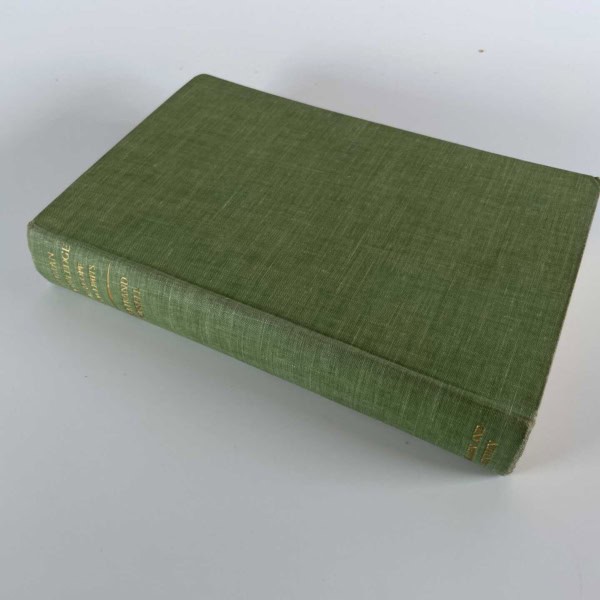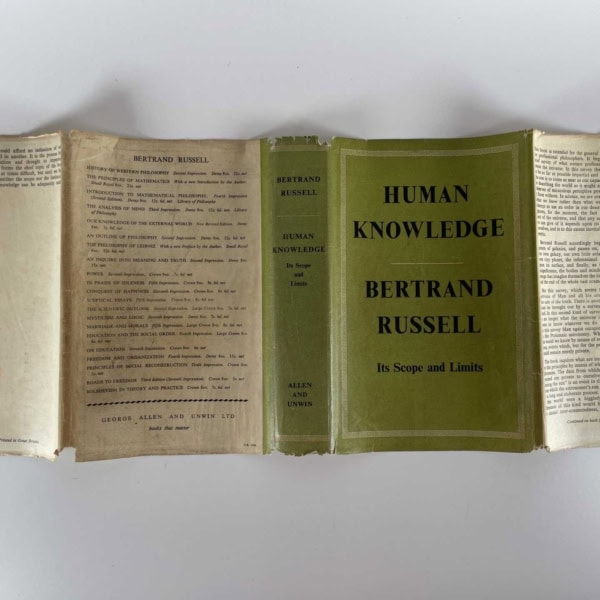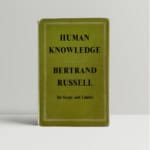Bertrand Russell – Human Knowledge – First Edition 1948
£185.00
A first edition, first printing of ‘Human Knowledge’ by Bertrand Russell in 1948. A very good without inscriptions and a little wear to the edges and corners. In the rare double-sided dust wrapper with a WWII map to the inside – a measure taken due to paper shortages during and after the War – the wrapper has a couple of closed tears as well as some chipping to the spine tips and corners.
Bertrand Russell explores the nature, sources, and limitations of human understanding. Published in 1948, this comprehensive work addresses how we acquire knowledge and the reliability of various methods. Russell examines scientific knowledge, contrasting it with philosophical inquiry, and delves into the principles of mathematics and logic. He argues that while empirical knowledge is vital, it is inherently uncertain and limited by human perception and the tools we use. Russell also critiques the assumption that human knowledge can ever be complete or wholly accurate, emphasising the importance of scepticism and ongoing inquiry. He suggests that acknowledging the limits of our knowledge can lead to more robust scientific and philosophical practices. Overall, the book is a profound investigation into epistemology, encouraging critical thinking and a cautious approach to claims of certainty.
(We don't keep all of our stock in the shop, so send us an email if you're planning a trip to see a particular author or book.)
- Description
Description
A first edition, first printing of ‘Human Knowledge’ by Bertrand Russell in 1948. A very good without inscriptions and a little wear to the edges and corners. In the rare double-sided dust wrapper with a WWII map to the inside – a measure taken due to paper shortages during and after the War – the wrapper has a couple of closed tears as well as some chipping to the spine tips and corners.
Bertrand Russell explores the nature, sources, and limitations of human understanding. Published in 1948, this comprehensive work addresses how we acquire knowledge and the reliability of various methods. Russell examines scientific knowledge, contrasting it with philosophical inquiry, and delves into the principles of mathematics and logic. He argues that while empirical knowledge is vital, it is inherently uncertain and limited by human perception and the tools we use. Russell also critiques the assumption that human knowledge can ever be complete or wholly accurate, emphasising the importance of scepticism and ongoing inquiry. He suggests that acknowledging the limits of our knowledge can lead to more robust scientific and philosophical practices. Overall, the book is a profound investigation into epistemology, encouraging critical thinking and a cautious approach to claims of certainty.

